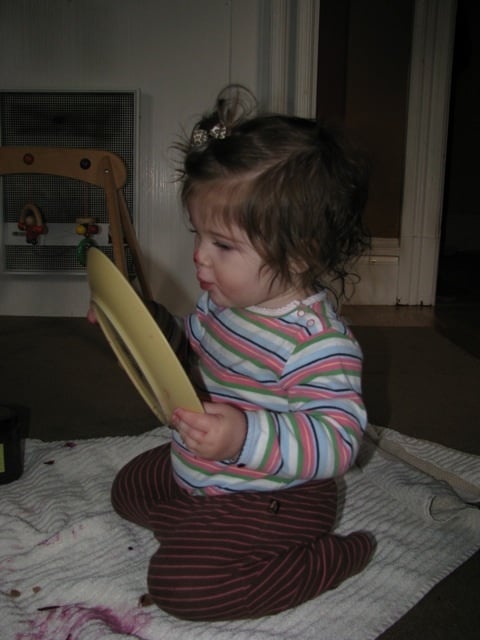We love cultured vegetables in our home. We enjoy making them and look forward to the day when Ruby can assist. I’ve taught many classes on making sauerkraut and kids love to help–crushing the cabbage with their bare hands, releasing the juices. Then the “science experiment” portion where you get to “grow bacteria on your counter.” I look forward to that day.
For now, we enjoyed our first experience of feeding our 10 month old sauerkraut for the first time! She loved it! Not even a “sour face” from the strong sour flavor. In fact, she wasn’t phased at all–just loved it! So much so she was licking the plate.





0 Comments